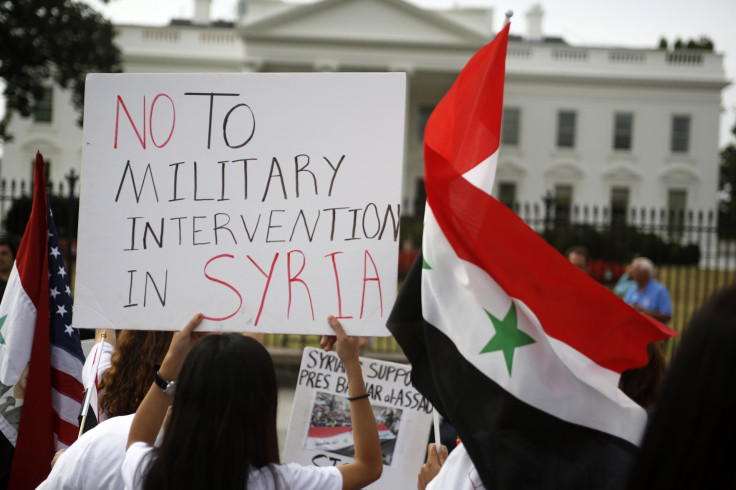Diplomats Fall Short On Syria U.N. Resolution As Wording Clash Between Russia And France Gets In The Way

Talks have begun among the five permanent U.N. Security Council members on a Security Council resolution to rid Syria of its chemical weapons.
The Western-drafted resolution will be set before the Security Council, but the diplomats discussing it must first come to an agreement on it before that can happen. During their meeting in New York on Tuesday, diplomats from America, France, Russia, Britain and China failed to reach an agreement, Reuters reported.
After talking for close to an hour, the group made the decision to reconvene on Wednesday. According to the diplomats, they aren't sure when an actual vote on the resolution will take place, Al Jazeera noted.
The wording of the draft caused issues for the diplomats since the U.S.-British-French draft looked to support an earlier deal between America and Russia that called for Syria to account for all chemical weapons within a week, destroying them all by mid-2014. But France and Russia couldn't find common ground over the French text of the draft, which featured a call for action citing Chapter VII of the U.N. Charter. This allows the use of force as well as non-military actions if Syria's President Bashar Assad does not fulfill the plan laid out by the U.S. and Russia.
While Britain, France and the U.S. support an forceful resolution against Syria, Russia's foreign minister Sergey Lavrov doesn't support a resolution that allows the use of the U.N. charter making force a possibility.
"The resolution of the Security Council will not contain any reference to Chapter VII," said Lavrov said following the meeting." We have the most serious reasons to suggest that this was a provocation. Some of our partners have stated dogmatically that only the regime could use chemical weapons ... but the truth should be ascertained."
But John Kerry stresses that the U.N. must back the resolution in order to get full cooperation from Assad.
"That will happen only with the United Nations passing a strong resolution," Kerry said in Washington on Tuesday. "It will happen with the enforcement of the world, with Russia standing by us in this effort, and it will happen, finally, because Assad lives up to what he has agreed to do."
Tuesday also marked a shift in the attitude of Israel, with Michael Oren, Israel's ambassador to the U.S., saying that the country wants Assad out.
"We always wanted Bashar Assad to go, we always preferred the bad guys who weren't backed by Iran to the bad guys who were backed by Iran," Oren said."The greatest danger to Israel is by the strategic arc that extends from Tehran, to Damascus to Beirut. And we saw the Assad regime as the keystone in that arc."
© Copyright IBTimes 2024. All rights reserved.
Join the Discussion





















